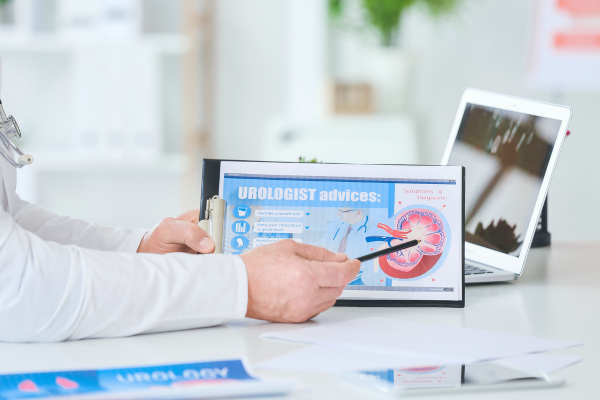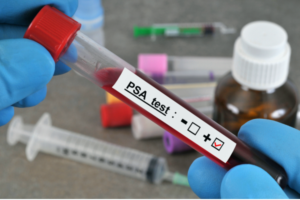Prostate issues, such as benign prostatic hyperplasia (BPH), prostatitis, and prostate cancer, can significantly impact a man’s quality of life. Coping with these conditions involves a combination of medical treatment, lifestyle changes, and emotional support. This article provides an overview of strategies to effectively manage and cope with prostate issues.
Understanding Prostate Issues
- Benign Prostatic Hyperplasia (BPH):
- Description: A non-cancerous enlargement of the prostate gland that can cause urinary problems.
- Symptoms: Frequent urination, difficulty starting and stopping urination, weak urine stream, and nighttime urination.
- Prostatitis:
- Description: Inflammation of the prostate gland, which can be bacterial or non-bacterial.
- Symptoms: Pain in the pelvic area, painful urination, frequent urination, and flu-like symptoms in acute bacterial prostatitis.
- Prostate Cancer:
- Description: A malignant tumor that develops in the prostate gland.
- Symptoms: Often asymptomatic in early stages, but advanced stages can cause urinary problems, blood in urine, and pelvic discomfort.
Medical Treatments
- Medications:
- Alpha Blockers: These relax the muscles of the prostate and bladder neck to improve urine flow (e.g., tamsulosin).
- 5-Alpha Reductase Inhibitors: These medications shrink the prostate by preventing hormonal changes that cause prostate growth (e.g., finasteride).
- Minimally Invasive Procedures:
- Transurethral Resection of the Prostate (TURP): Removal of prostate tissue to relieve urinary symptoms.
- Laser Therapy: Uses lasers to remove or shrink excess prostate tissue.
- Surgery:
- Prostatectomy: Surgical removal of the prostate gland, often used in cases of prostate cancer.
- Radiation Therapy:
- External Beam Radiation: Targets prostate cancer cells with high-energy rays.
- Brachytherapy: Involves placing radioactive seeds directly into the prostate.
- Hormone Therapy:
- Purpose: Reduces levels of male hormones that can stimulate the growth of prostate cancer cells.
- Chemotherapy:
- Usage: Used for advanced prostate cancer that has spread beyond the prostate.
Lifestyle Changes
- Healthy Diet:
- Recommendation: Incorporate fruits, vegetables, whole grains, and lean proteins. Avoid high-fat and processed foods.
- Benefits: Supports overall health and can reduce inflammation and cancer risk.
- Regular Exercise:
- Recommendation: Engage in moderate to vigorous physical activity most days of the week.
- Benefits: Helps maintain a healthy weight, reduces stress, and improves overall well-being.
- Hydration:
- Recommendation: Drink plenty of water, but reduce fluid intake in the evening to minimize nighttime urination.
- Benefits: Promotes urinary health and reduces bladder irritation.
- Avoiding Irritants:
- Recommendation: Limit intake of caffeine, alcohol, and spicy foods.
- Benefits: Reduces bladder irritation and urinary symptoms.
- Weight Management:
- Recommendation: Achieve and maintain a healthy weight through diet and exercise.
- Benefits: Reduces the risk of BPH and prostate cancer.
Emotional and Psychological Support
- Support Groups:
- Description: Joining support groups for men with prostate issues can provide emotional support and practical advice.
- Benefits: Sharing experiences and coping strategies can reduce feelings of isolation and anxiety.
- Counseling:
- Description: Professional counseling or therapy can help men and their families cope with the emotional impact of prostate issues.
- Benefits: Provides tools for managing stress, anxiety, and depression.
- Mindfulness and Relaxation Techniques:
- Description: Practices such as meditation, yoga, and deep breathing can help manage stress.
- Benefits: Improves emotional well-being and reduces stress-related symptoms.
Regular Monitoring and Follow-Up
- Regular Check-Ups:
- Recommendation: Schedule regular appointments with a healthcare provider to monitor prostate health and manage any ongoing issues.
- Benefits: Early detection and treatment of complications can improve outcomes.
- PSA Testing:
- Recommendation: Regular prostate-specific antigen (PSA) tests as recommended by a healthcare provider.
- Benefits: Helps in early detection of prostate cancer and monitoring of existing conditions.
Conclusion
Coping with prostate issues requires a comprehensive approach that includes medical treatment, lifestyle changes, and emotional support. By adopting healthy habits, seeking appropriate medical care, and utilizing support systems, men can effectively manage prostate conditions and maintain a good quality of life. Regular monitoring and proactive management are key to addressing prostate health challenges.
References
- Mayo Clinic. (2021). Benign prostatic hyperplasia (BPH). Retrieved from Mayo Clinic
- National Institute of Diabetes and Digestive and Kidney Diseases. (2014). Prostatitis. Retrieved from NIDDK
- American Cancer Society. (2021). Prostate cancer. Retrieved from American Cancer Society
- Harvard Health Publishing. (2020). Prostate cancer prevention: Ways to reduce your risk. Retrieved from Harvard Health
- Prostate Cancer Foundation. (2021). Coping with prostate cancer. Retrieved from Prostate Cancer Foundation









